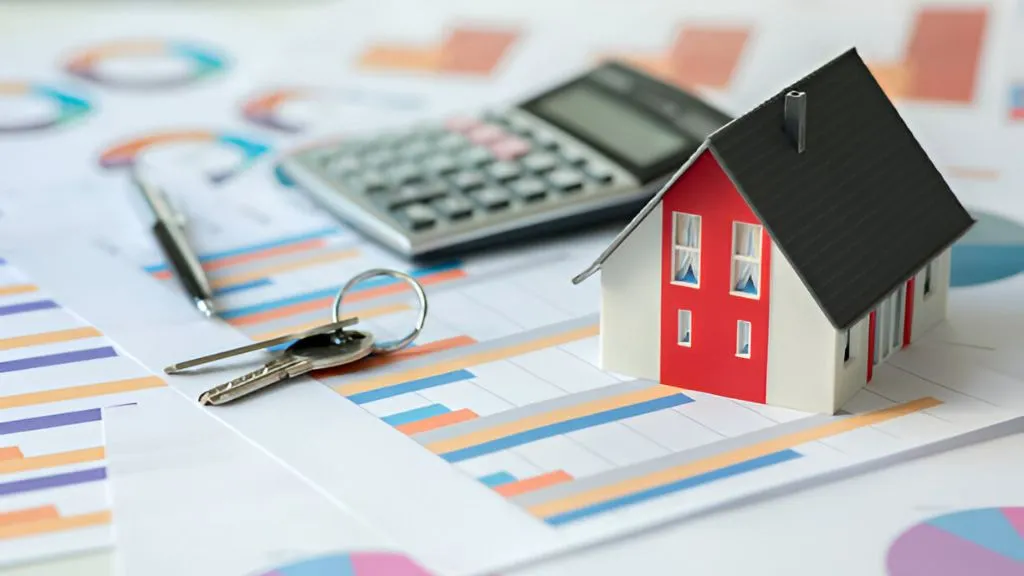
It is a significant milestone to buy a first home, but let’s be honest, it is one of the most significant financial commitments one can make.
Thankfully, the Indian government has realized this fact and enacted Section 80EEA of the Income Tax Act to lessen the financial burden for newer homebuyers.
So, if you’ve been wondering “What is 80EEA?” or how it can help reduce your taxes, you’ve come to the right place! Time to break it down simply a little fun along the way.
What is Section 80EEA?
The different tax deductions discussed under Section 80EEA aim to stimulate affordable house purchases. Under this scheme, a first-time homebuyer will be allowed an additional deduction of interest on home loans, on amounts up to ₹1.5 lakh.
The good point is that this is on top of the other ₹2 lakh deduction available under Section 24(b), which means you can claim an overall deduction of ₹3.5 lakh in respect of interest paid on housing loans interest deduction Section 80EEA and Section 24(b). It means that in case you were obtaining a house loan for an affordable property, the government, in turn, is giving you a thumbs-up in terms of tax savings. Sounds good, right?
Eligibility Criteria for 80EEA Deduction
Now pause for a moment and see whether you are eligible for an 80EE deduction:
- First-Time Buyer: It should not be that you hold ownership over any other house at the time of availing the loan. (No sneaky second-home tricks here!)
- Loan Sanction Period: The home loan should have been sanctioned between April 1, 2019, and March 31, 2022. (Sorry, but if that loan is newer, this party isn’t meant for you.)
- Property Value Capping: The price of the house should not exceed ₹45 lakh by stamp duty value.
- Loan from a Recognized Institution: The loan is to be taken from a financial institution or housing finance company such loans can be availed of from a friend, family, or, for that matter, from the mammoth wealthy uncle.
If you tick all the above points, then congrats! You are eligible for the section 80EEA deduction that entails more money for you in savings.
How Much Can You Save with Section 80EEA?
Okay, let’s get rolling with the numbers since that’s quite an important matter now.
- According to Section 24(b), here is the deduction available for home loan interest payments- in all practicality it comes to up to ₹2 lakh.
- There is also the additional deduction of ₹1.5 lakh under Section 80EEA.
- This, therefore, amounts to a total deduction of ₹3.5 lakh in terms of housing loan interest payments under Sections 80EEA and 24(b)
Some really good savings here exceeding over ₹1 lakh a year for those earning 30% tax bracket. That’s huge money in case it can help to buy furniture, make that perfect vacation or plan to get this amazing home theatre system that you have always been eyeing!
How to Claim the Section 80EEA Deduction?
The process to claim your 80EEA deduction is simple. Just do the following:
- Obtain Your Interest Certificate: Obtain it from your lender (bank or housing finance company) showing how much interest you have paid during the year; this is the interest paid by you.
- Report it in your tax (ITR): Claim that deduction under Section 80EEA in the profile section of the income tax return.
- Record Keeping: Maintain a copy loan agreement, sanction letter and relevant property documents just in case the tax department wants to double-checking.
Section 80EEA vs Section 80EE: What’s the Difference?
Section 80EE of the Income Tax Act is another similar home loan interest deduction. The two have similarities but are different in one important thing:
- Section 80EE granted deductions for loans sanctioned from 2016 to 2017 for the maximum amount of ₹50,000.
- Section 80EEA came to the front in 2019, increasing the deduction to ₹1.5 lakh, which is a better deal for first-time buyers.
In summary, focus on Section 80EEA if your loan comes straight under the eligible period.
Property Geeks: Your Trusted Real Estate Partner
It is Property Geeks, after all, an expert resource for anything real estate, which guides homebuyers and investors to make informed decisions. Be it for buying, selling, or investing, the team provides a holistic understanding of properties along with loan assistance and tax-saving tips, like deduction under Section 80EEA.
Possessing comprehensive knowledge of the market, coupled with an earnest endeavour to simplify real estate, justifies Property Geeks’ claim that it brings you the best deals as well as astute investment opportunities with a smooth and trouble-free home-buying experience.
Final Thoughts
Totally! A great benefit to saving tax on deductions under section 80EEA is available to first-time home buyers if the cost of the house is not more than ₹45 lakh.
At Propertygeeks we understand that home buying is a big decision, and we are here to make that decision easier for you, be it home loans, property investments, or tax benefits.
So, if you are buying your first home, see whether you qualify under section 80EEA of the Income Tax Act because, after all, everyone loves some extra tax savings!






